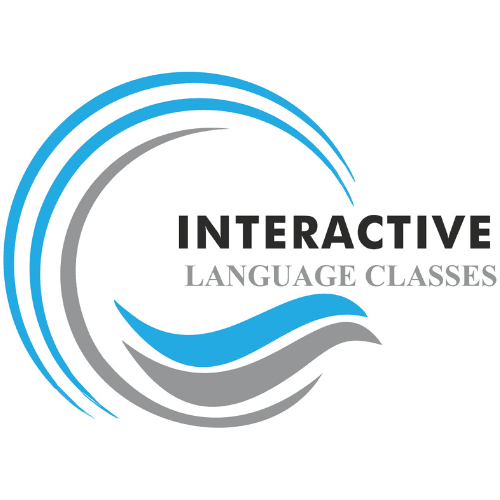No products in the cart.
Introduction
In an interconnected world, bilingual and multilingual skills are goldmines. A freelance translator career can offer flexibility, global opportunities, and the chance to turn passion for languages into income. At Interactive Language Classes (ILC), we often see students who take Arabic, French, Spanish, Russian, and Uzbek courses go on to become translators — and not just hobbyists, but professionals.
If you’re wondering how to become a freelance translator, this guide will walk you through the essential steps — from skill-building to landing your first paying client.
1. Build Strong Language Skills
The core of any translator’s credibility is proficiency. You should aim for at least C1 / C2 level fluency in your languages (as defined by CEFR).
- Enroll in structured classes with ILC to sharpen your grammar, vocabulary, and usage in both your source and target languages (for example, English ⇄ Arabic, English ⇄ French).
- Practice all four skills: reading, writing, listening, speaking. Translation is not just word-for-word replacement; you need to understand nuance, idiom, and cultural context.
- Read widely — newspapers, literature, blogs, documents in your working languages.
- Try translating small texts (articles, social media posts, short stories) as practice.
By building a strong foundation, you’ll be better equipped for specialized translation work (legal, medical, technical, etc.).
2. Choose In-Demand Language Pairs
Not all languages have equal demand. To increase your chances of getting work:
- Research local and global demand. In India (especially Delhi/NCR), language pairs like English–Hindi, English–Arabic, English–French, English–Russian, and regional pairs (e.g. Hindi–Urdu) often have work.
- Choose a niche area (e.g. legal translation, medical translation, website localization) to differentiate yourself.
- Keep up with trends: as India’s global trade and digital exports grow, demand for translation and localization services is expanding.
Always check job boards like Upwork, ProZ, TranslatorsCafe, and freelance platforms to see which language combinations are most requested.
3. Learn Tools & Best Practices
Professional translators often use tools and workflows, not just manual translation. Some key skills:
- CAT (Computer-Assisted Translation) tools: like SDL Trados, memoQ, Wordfast. These tools help you manage translation memory, consistency, and efficiency.
- Glossaries and style guides: for consistency, particularly in specialized fields.
- Proofreading & editing: a good translator is also a strong editor.
- Localization sensibility: knowing when to adapt cultural references, units, date formats, etc.
- Time and project management: be able to estimate, plan, and deliver reliably.
These skills will help you move from hobby translations to professional-level service.
4. Build a Portfolio & Credentials
Clients want proof. Here’s how to start building credibility:
- Translate volunteer or open-source content (nonprofits, local community groups) to build sample work.
- Offer discounted or pro bono translations initially in exchange for permission to showcase work.
- If you have certification (e.g. from translation institutes or recognized exams), highlight that.
- Create a professional translator profile or website. On your ILC classes profile (if possible) or your personal portfolio, include samples, client testimonials, and your language pairs.
- Ask satisfied clients for referrals and feedback.
A solid portfolio helps you justify higher rates and win trust.
5. Find Freelance Platforms & Clients
Here are some well-known platforms, plus tips for client acquisition:
Popular Freelance Platforms for Translators
- Upwork — widely used and accessible globally.
- Freelancer.com — good for bidding on projects.
- ProZ — niche for translators & interpreters.
- TranslatorsCafe — community of translators offering projects.
- Gengo — platform offering translation tasks via their system.
- Fiverr — you can list “translation gigs” starting at small rates.
- Guru and other freelance marketplaces.
On these platforms, optimize your profile with your focused language pair, niches, and keywords like freelance translator, document translation, legal translator, etc.
Offline & Local Channels
- Use local connections: embassies, hospitals, NGOs, local companies in Delhi/NCR may need translation services.
- Look for translation needs in content, websites, or reports in your city (Delhi, Gurugram, Noida).
- Leverage ILC’s student or alumni network — you may get referrals from people learning languages at ILC.
- Join translator associations or forums (local or global) for leads and networking.
6. Set Your Rates & Payment Terms
Be clear and confident in pricing. Here are tips:
- Research typical rates in your language pair and domain (in India and globally).
- You can charge per word, per page, or per hour depending on project type.
- For new clients or small projects, you may offer a test/trial rate, but avoid underpricing.
- Have clear payment terms — e.g. 50% upfront or milestone payments.
- Use contracts or simple agreements to outline scope, timeline, revisions, and payment.
As your experience grows and your portfolio strengthens, you can gradually raise your rates.
7. Deliver Quality & Build Client Relationships
Consistency, reliability, and quality will get you repeat clients and referrals. Some practices:
- Double-check your work: grammar, typos, consistency.
- Use feedback — revise and improve.
- Respect deadlines, and communicate early if challenges appear.
- Offer additional services (proofreading, localization, editing) to clients.
- Ask happy clients for referrals or testimonials (which you can later display).
Over time, you’ll move from one-off gigs to stable clients and retainer arrangements.
8. Grow & Scale
Once you’re established, you can:
- Take larger or more specialized projects (legal, technical, literary).
- Collaborate with agencies or other translators.
- Build passive income streams — e.g. translate eBooks, glossaries, or localize content for companies.
- Teach translation or language classes (for instance, via ILC or as guest instructor).
- Stay updated on language trends, new CAT tools, and AI+translation synergy (while retaining human quality).
Conclusion
A freelance translator career is realistic, rewarding, and adaptable. With steady effort, continuous learning, and smart client acquisition, you can turn your language talents into a sustainable profession — starting right from your city (Delhi/NCR or wherever you are).
At ILC Classes, we are proud to support future translators by helping you build the linguistic foundation, cultural nuance, and confidence you need. If you are taking Arabic, French, Spanish, or Russian classes with us, your path to professional translation is closer than you think.
To get started, check out our courses page (or whatever internal link you want) or contact us — we’d be happy to guide you on your language journey.










